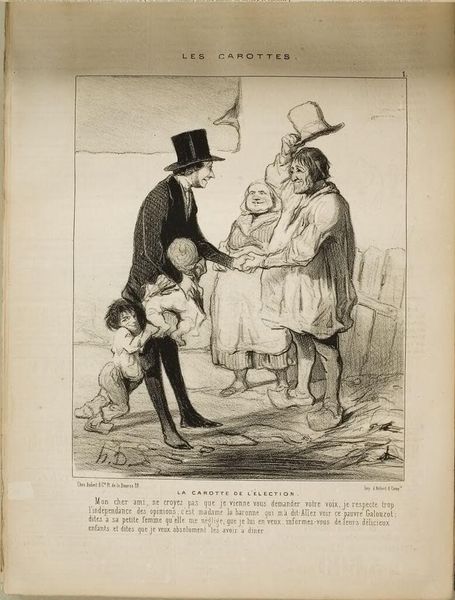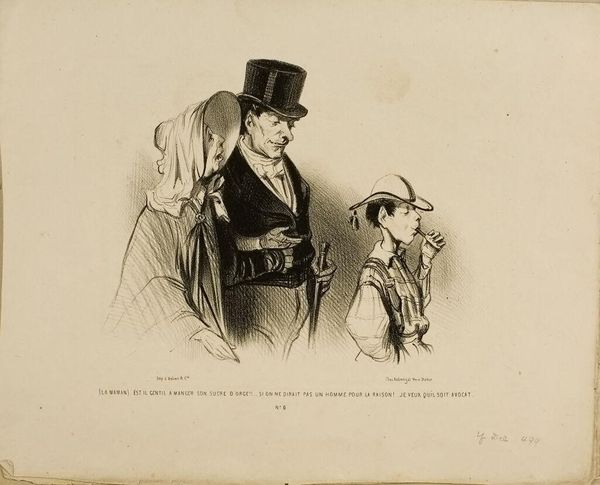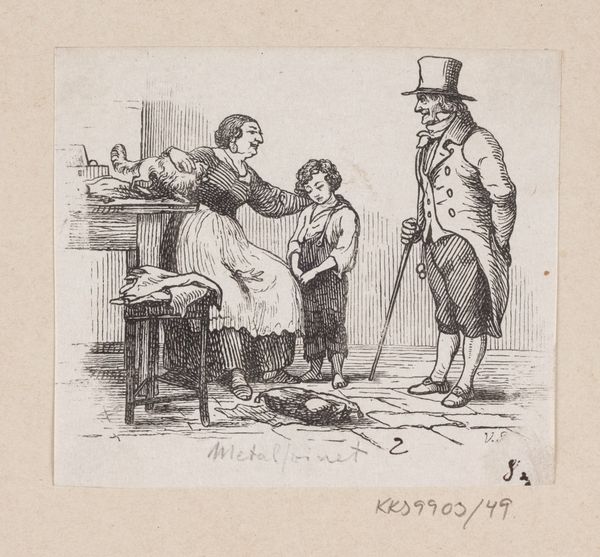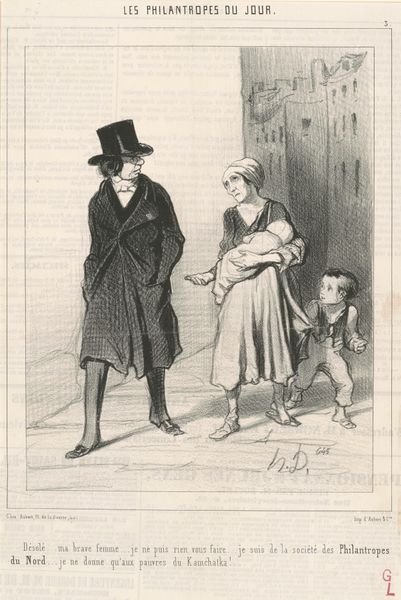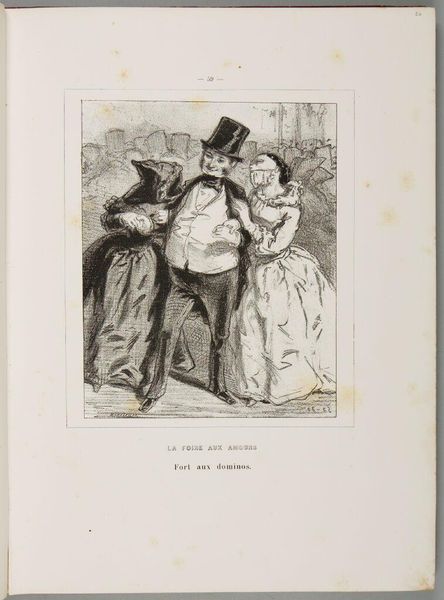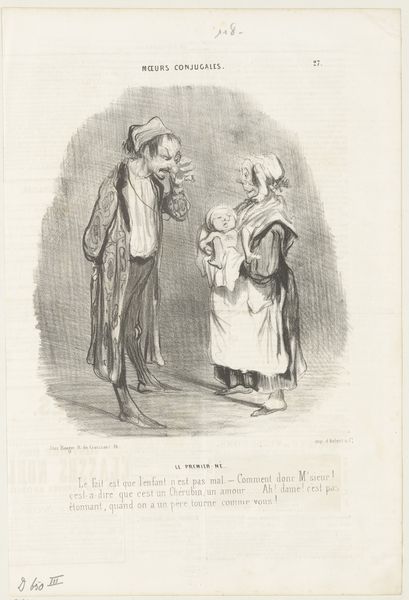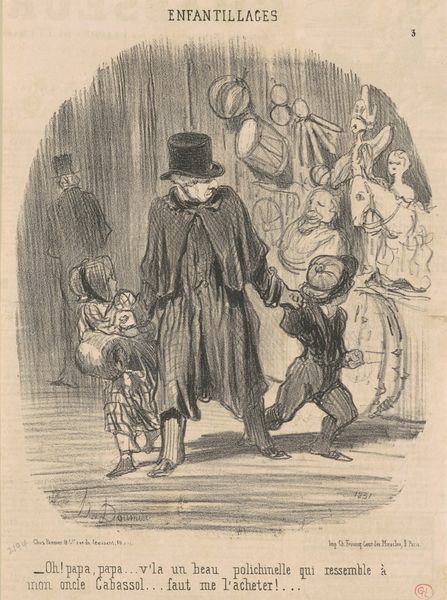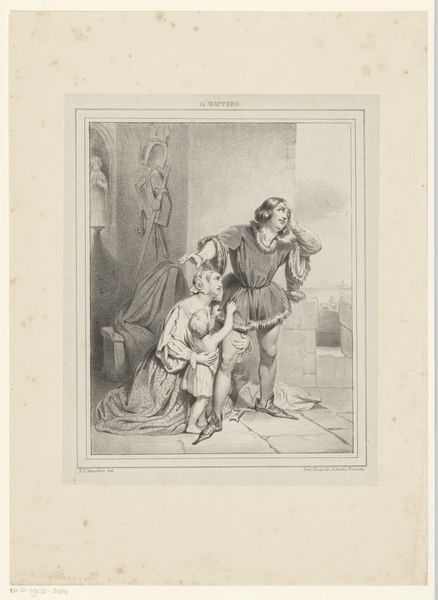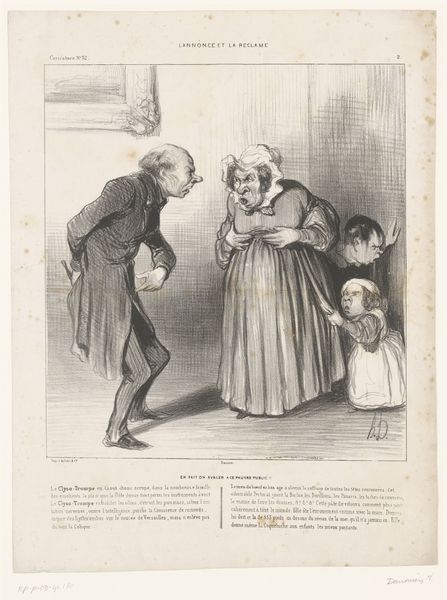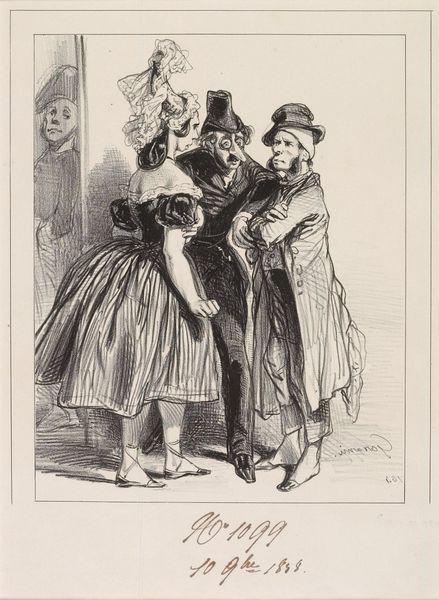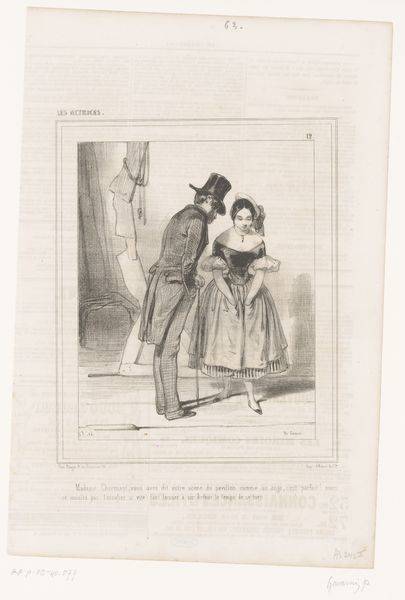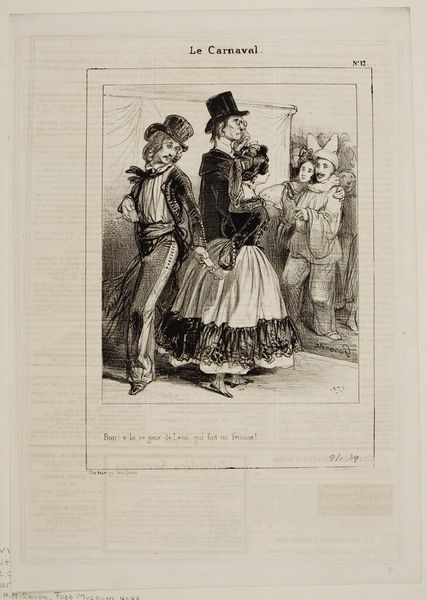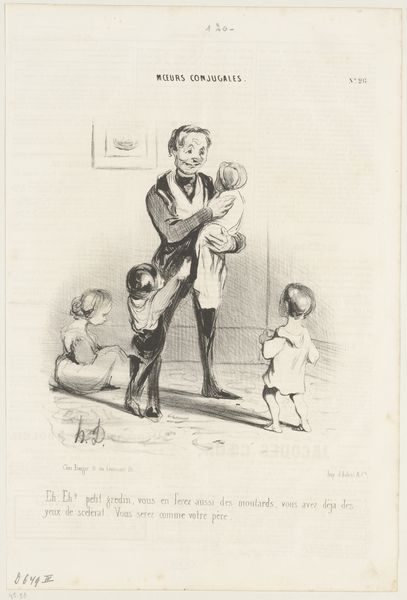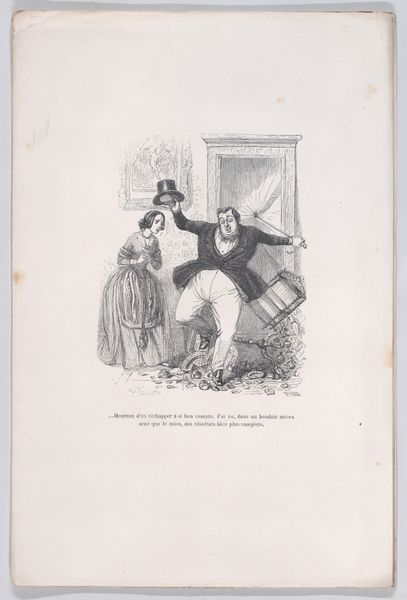
The Election Hoax. “My dear friend... do not think that I have come to ask you for your vote. I respect the independence of opinion too much for that. It is the Baroness who said to me: " Go see that poor Galouzet, tell his little wife that she is neglecting me and that I am angry with her for that. Ask about their lovely children, and say that I absolutely insist on having them over for dinner,” plate 1 from Les Carottes 1844
0:00
0:00
drawing, lithograph, print, paper
#
drawing
#
16_19th-century
#
lithograph
# print
#
caricature
#
pencil sketch
#
paper
#
genre-painting
Dimensions: 220 × 182 mm (image); 356 × 270 mm (sheet)
Copyright: Public Domain
Curator: This lithograph by Honoré Daumier, created in 1844, is titled "The Election Hoax. 'My dear friend...do not think that I have come to ask you for your vote...". Editor: My first impression is one of stark contrast, visually. The crisp lines detailing the gentleman are so different from the sketchy background and rough-hewn people. Curator: Daumier often used lithography to address social and political issues of his time, like class inequality. It offered an affordable method of printmaking. Editor: Precisely! The textures achieved with the lithographic crayon vary dramatically. Note the smooth, almost velvety rendering of the suit, which then sets off the almost frenzied strokes used for the dirt and rags on the floor. The drawing has a strong sense of volume, and the forms exist powerfully on the paper. Curator: Right, it's interesting how Daumier utilizes the lithographic process to highlight class distinctions. The careful attention to the material possessions and attire of the upper class contrasts sharply with the hasty portrayal of the impoverished. The material culture on display underscores the social commentary. Editor: Observe, too, the body language – the clasped hands and the way the politician holds the children seem contrived. His entire figure forms a rigid, dark triangle that dwarfs the smaller, softer shapes surrounding him. Curator: Absolutely, there is a performance aspect presented here that brings attention to the mechanics of political maneuvering in a society divided by such economic disparities. How labor and influence are bartered becomes evident through its design and materials. Editor: A brilliant breakdown that reinforces my feelings about the stark formal divisions. Curator: It shows how Daumier used material culture and technique as a tool for political criticism and the realities of the era. Editor: Indeed, it all comes down to the arrangement of shapes and lines which amplify the intended effect, the illusion behind this scene, in a manner which resonates across the ages.
Comments
No comments
Be the first to comment and join the conversation on the ultimate creative platform.
